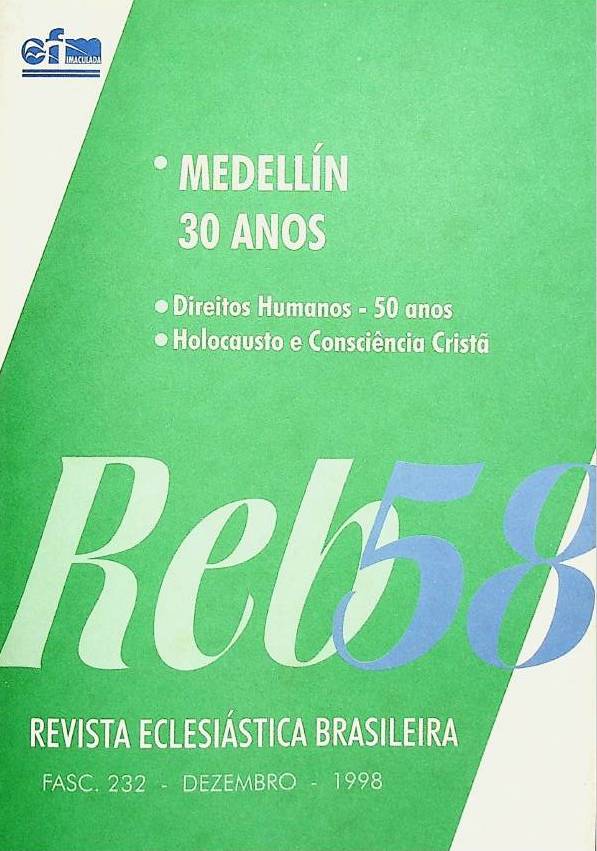Medellín e os sinais dos tempos
DOI:
https://doi.org/10.29386/reb.v58i232.2342Resumo
Desde a Encíclica Pacem in terris (1963) de João XXIII, o termo “sinais dos tempos” aponta para uma nova consciência histórica da Igreja. Medellín assume um compromisso histórico de libertação frente à realidade latino-americana de 1968. Esse compromisso se expressa através de uma maior aproximação aos pobres, de denúncias da violência social e de incentivos à conscientização e organização dos setores populares. Infelizmente, os pobres dos Documentos de Medellín ainda não têm rostos indígenas ou afro-americanos. A “opção pelos pobres”, de Medellín, necessita ser aprofundada através da “opção pelo protagonismo dos pobres e dos outros na própria Igreja”. Hoje, ao nos confrontarmos criticamente com a proposta de Medellín, afirmamos a importância do sonho que ele despertou: sonho de uma Igreja nova, “autenticamente pobre, missionário e pascal”.
Abstract: Ever since the Encyclical Pacem in terris (1963) by Pope John XXIII, the term “signs of the times” has pointed towards a new historical consciousness in the Church. Medellín assumed an historical compromise ofliberation in face of the reality of Latin America in 1968. This compromise is expressed through a greater approximation to the poor, through denoucements of social violence and incentives to the conscientization and organi- zation of the popular sectors. Unhappily, the poor of the Documents of Medellín still haven’t got Indian or Afro-American faces. The “option for the poor" of Medellín needs to be deepened through the “option for the protagonism ofthe poor and of the others in the Church itself”. Today, critically facing up to the proposal of Medellín, we affirm the importance of the dream that it awoke: the dream of a new Church, “authentically poor, missionary and paschal”.
Downloads
Downloads
Publicado
Como Citar
Edição
Secção
Licença
Direitos de Autor (c) 2021 Revista Eclesiástica Brasileira

Este trabalho encontra-se publicado com a Licença Internacional Creative Commons Atribuição 4.0.
Os autores cedem os direitos autorais; como gratificação, a REB oferece dois exemplares ao Autor de um artigo.
A REB adere à licença não comercial (Creative Commons). Portanto, é permitida cópia, distribuição e exibição dos textos, respeitados os direitos autorais e citada a fonte de sua proveniência.


